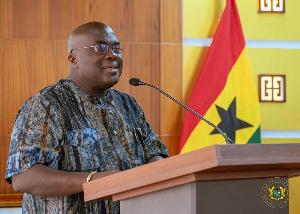Ajumako (C/R) Feb. 23, GNA-The Ajumako-Enyan-Essiam district Assembly has so far registered 7,000 youth under the Youth employment Programme to be exposed to skills development and training in the areas of Agriculture and other vocational and technical skills.
In this regard, the Assembly's sub-Committee on Productive and Gainful Employment has developed programmes to assist the youth to market their products and also assist them to improve the quality of their products to enable them to become more competitive in the market. The District Chief Executive for the Area, Mr. Kenneth Obimpong said this at a day's poverty reduction workshop for stakeholders on Decent Work Pilot Project, organised jointly by the Ajumako-Enyan-Essiam and the Awutu-Effutu-Senya district Assemblies at Ajumako on Thursday.
The International Labour Organisation (ILO) sponsored the workshop, which was attended by over 100 participants made up of chiefs, Civil Savants, women in development, traders, farmers and Assembly Members.
Mr. Obimpong said the Assembly with the support of ILO has trained 100 entrepreneurs in product quality development to improve the skills of the small business enterprises in packaging their products.
Mr. Leo Kabba, Coordinator of the National Youth Employment Programme cautioned Ghanaians not to politicise the programme for it to fail but support it to achieve its aims and objectives.
He said one of the objectives of the programme was to put the youth into the productive situation to help increase productivity to improve the economy and also reduce poverty in society.
Mr. Kabba commended ILO for its support to help reduce poverty in the Ajumako=3DEnyan-Essiam and Awutu-Effutu-Senya districts. He said the youth, being future leaders must be given the necessary training skills to enable them to contribute their quota towards the development of the country. Mr. Ohsia Saraza, Executive Director of ILO from Geneva, commended the two districts for the impressive manner they have embraced the pilot project and expressed the hope that other beneficiary communities would emulate them.
Regional News of Friday, 23 February 2007
Source: GNA












